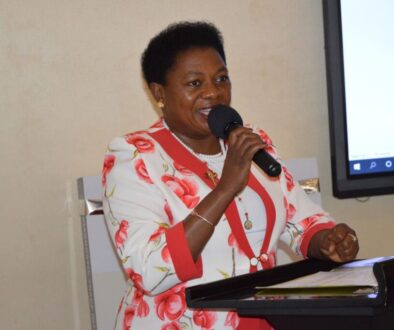NCHE’s Technology-Based Education Encourages Consumable Research

For the first time in its 20 years, the National Council for Higher Education (NCHE)’s Higher Education Conference, its 5th and 14th Higher Education Exhibition, has been held outside Kampala.
Uganda Christian University (UCU) in Mbale City hosted the three-day event from March 21 at its Graduation Ground at Pallisa Road, the first Regional Higher Education Exhibition and Regional Conference.
Regionalization demonstrates maturity and compatibility with the development trends reflected in the two ‘firsts’ theme, “Fostering Graduate Employability and Innovation.”
The Directorate for ICT, Research and Innovation is responsible for the NCHEs’ annual conference and exhibition, the two events of Higher Education Week.
It organized the higher education conference and a forum for higher education researchers to access new knowledge around fostering graduate employability.
The conference attracted around 200 people in Mbale and 500 online participants via a Zoom Webinar, while the exhibition attracted upwards of 2000 people.
The exhibition mainly targets secondary school O and A level students to find universities and OTIS showcasing a variety of courses in one place.
The two preceding exhibition themes dwelt on NCHE’s perception and preparation for the Fourth Industrial (4iR) Revolution and the implementation of Open Distance E-Learning (ODeL).
Open Distance and E-Learning
NCHE in line with its strategic objective of promoting ICTs in all sectors of Higher Education launched the mainstreaming of ODEL in Higher education and continues to pursue the adoption of emerging technologies both in curriculum development and supporting administration.
The COVID-19 outbreak accelerated the institutions’ need for Emergency ODeL to overcome the teaching and learning constraints in a physical space disabled by SOP under COVID-19. The ODeL uptake after COVID-19 shot up to about 54 out of 250 higher education institutions of learning getting ODeL certified, which is still considerably low.
Research & Dissemination
Whereas technology-oriented delivery and higher education course management are trending, most universities lack the funding to equip a product for the working environment.
A university must conduct research, but where there is none, the teaching staff would not have the knowledge to pass on to the students. The stakeholders and the government need to enable universities to diversify their sources of income so that they can support research.
Liaisons between industry and academia are very useful. Universities should ideally have a liaison office with industry, where to place their researchers and students to work within different enterprises before they graduate. Collaboration like the one between Uganda Manufacturers Association and Makerere University would go a long way.
NCHE also collects data annually and publishes it in ‘the State for Higher Education report,’ an interaction of the developments in Uganda’s Higher Education sector in a given year.
The data captures aspects like student enrollment, gender-aligned enrollment, the subjects taught, STEM consumption, and infrastructure and publishes the status of higher education for the entire country.
The data collected from the state of high education and the tracer studies contribute to the theme because they drive research and solutions for fostering graduate employability.
It determines what needs to be done by the regulator to foster graduate employability and innovation.
The directorate also conducts tracer studies, the last of which was about Science, Technology, Engineering, and Mathematics (STEM) and the employability of graduates who have done those subjects.
It has conducted one at the PhD level and completed one at the undergraduate, TVET, and vocational levels.
This conference provides knowledge to students on the essence of research and its critical areas where the communities are ready to consume. The directorate encourages consumable Research and Development for the institutions of higher learning and works with the private sector to find the key areas and skills required to engage graduates in the world of work.
It aligns with organizations like the Research and Education Network of Uganda (RENU) and provides a platform for conducting research in higher education. It also provides the resources and the actual research databases for students, which collaborations are necessary for ascertaining the required employable skills and their integration into the new curriculum.
NCHE’s accreditation system also emphasizes employable skills, while the data identifies the areas of emphasis for policymakers and implementers to enable students’ employability.
The lack of research infrastructure, teaching staff, laboratories, and high computing labs is a challenge, but the need for academic centres of excellence for sharing resources as we go into the Fourth Industrial Revolution (4iR) cannot is critical.
Dr Nora Mulira is NCHE’s Director for ICT, Research and Innovation.





